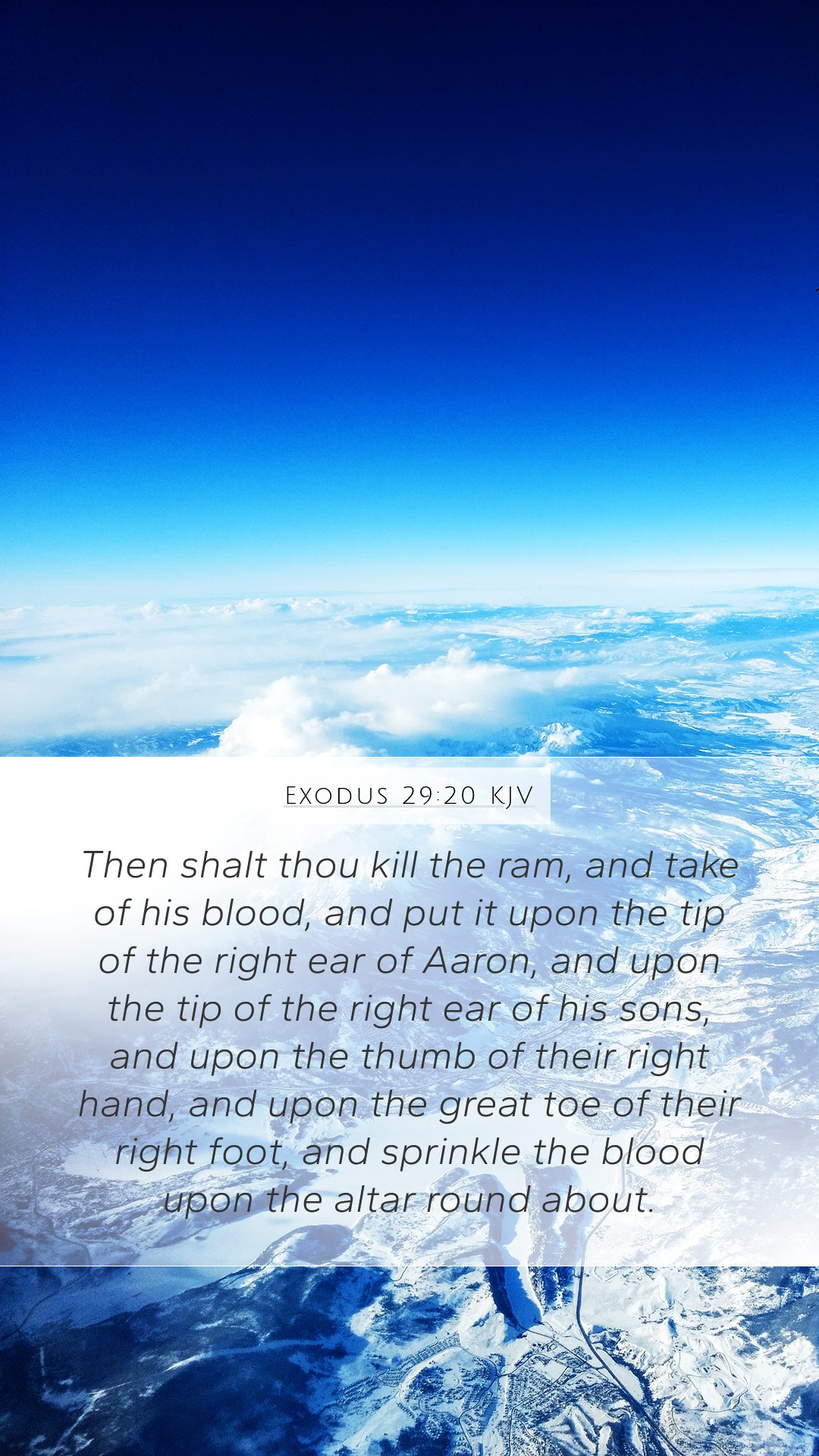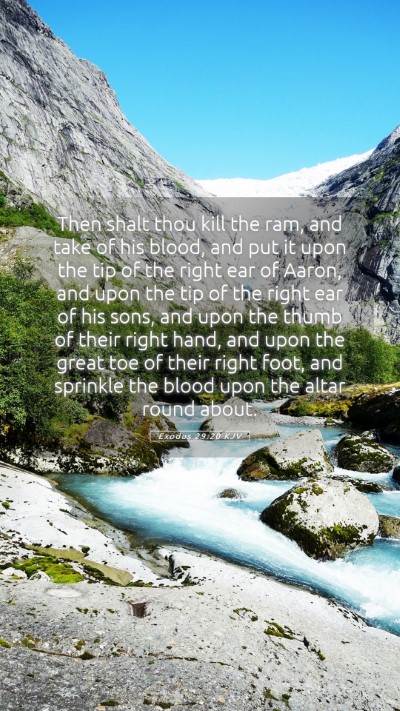Understanding Exodus 29:20: A Detailed Commentary
Bible Verse: Exodus 29:20
Exodus 29:20 states: "Then thou shalt kill the ram, and take of his blood, and put it upon the tip of the right ear of Aaron, and upon the tip of the right ear of his sons, and upon the thumbs of their right hands, and upon the great toes of their right feet, and sprinkle the blood upon the altar round about."
Meaning of Exodus 29:20
This verse is part of God’s instructions for the consecration of Aaron and his sons as priests. It illustrates the seriousness of their role and the sacred rituals involved in setting them apart for service. The act of applying blood to various parts of their bodies symbolizes the complete dedication of their senses and actions to the service of God.
Key Insights from Commentaries
- Matthew Henry:
Henry emphasizes that the application of blood signifies special honor and a divine covering. It represents not only ritual purification but also the empowerment and commissioning of Aaron and his sons for their priestly duties.
- Albert Barnes:
Barnes notes that the right side is often associated with strength and favor in biblical symbolism. By anointing the right ear, hand, and foot with blood, it symbolizes that all aspects of their lives should be under the governance of God and that their work as priests is a continuous service in holiness.
- Adam Clarke:
Clarke elaborates that this ritual is not merely an ancient custom but carries significant spiritual implications. The blood represents atonement, demonstrating that service to God requires sacrifice and the acknowledgment of one's need for external cleansing and internal commitment.
Spiritual Significance
The ritualistic actions described serve multiple purposes that are relevant for modern readers seeking Bible verse meanings:
- Consecration: This verse illustrates the importance of being set apart for God's service, which is a principle that can be applied to believers today.
- Authority: The blood signifies God's authority over the lives and actions of those who serve Him, reinforcing the concept that service is rooted in divine commission.
- Cleansing: The use of blood symbolizes the need for purification, highlighting the theme of atonement that runs throughout the Scripture, culminating in Christ's sacrifice.
Application in Daily Life
When interpreting this Bible verse, it's essential to reflect on its implications for personal faith and practice:
- Consider what it means to be consecrated in your own life. How can you dedicate your actions, words, and thoughts to God?
- Recognize the need for spiritual cleansing and the importance of repentance and being set apart from worldly ways.
- Reflect on the significance of serving God with all your strength and resources, just as Aaron and his sons were called to do.
Related Bible Cross References
- Leviticus 8:23-24 - Further elaboration on the ceremonial consecration of priests.
- Hebrews 9:13-14 - The significance of blood as a means of cleansing, with a New Testament perspective.
- Romans 12:1 - The call for believers to present their bodies as living sacrifices, holy and acceptable to God.
Conclusion
Exodus 29:20 serves as a profound example of the principles of holiness, service, and sacrifice in biblical teachings. Through the study of this verse, readers can gain deeper understanding of Scripture and appreciate the rituals that prefigure the ultimate sacrifice of Jesus Christ. Incorporating insights from traditional commentaries aids in a richer comprehension of the meanings behind such significant passages, allowing for effective Bible verse study in personal and group settings.
As we engage with this scripture, we are invited to explore not only the historical context of biblical verses but also their relevance and application in our lives today.


